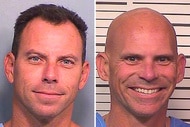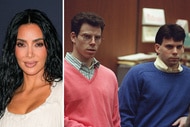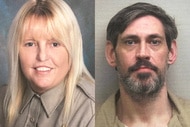Create a free profile to get unlimited access to exclusive videos, breaking news, sweepstakes, and more!
Woman's DNA Test Locates Kid's Sperm Donor Relative — And Sperm Bank Threatens To Sue
Danielle Teuscher used the website 23andMe to look into the ancestry of her child, who was conceived with the help of a donor.

A woman who was looking into her daughter's ancestry ended up with something else: a letter threatening legal action.
Danielle Teuscher used the website 23andMe to look into the ancestry of her 5-year-old daughter, who was conceived with the help of a sperm donor. The donated sperm came from Northwest Cryobank, which offers anonymity to its donors.
Tuescher told CBS News that she and other family members uploaded their DNA in hopes of learning about Zoe's heritage and possible health issues. What popped up though, was an immediate relative of her daughter’s sperm donor.
"I said 'I don't want to cross any boundaries. I just want to let you know that we are out here and we are open to contact if you are,'" Teuscher told CBS, explaining how she messaged the donor’s relative, a person on the site who she said accepted messages.
That message resulted in a "cease and desist" letter from Northwest Cryobank, which ordered the mother not to contact the donor anymore. Northwest Cryobank also threatened to"seek $20,000 in liquidated damages."
Worst of all, Teuscher said that the sperm bank also took back four vials of sperm she purchased with the hopes of creating more children who would be Zoe's genetic siblings.
The mother told CBS News that she was crying for days.
"I felt embarrassed almost. Here I thought I was doing this thing I thought was in the best interest of my daughter ... And then it just came back on me in just such a harsh way that made me feel like I did something terrible, like I was a criminal."
Northwest Cryobank told CBS News it does not prohibit DNA testing. However, it said, "Concern arises when one uses DNA test results to contact a donor and/or his family” and that clients "contractually agreed to not independently seek the identity or attempt to contact these individuals."
Genetic genealogy helped crack the decades-old cold case of the infamous Golden State Killer last year, and ever since it’s been leading to arrests in other unsolved murders, low and high profile alike. However, its rise in popularity has led to ethical concerns.
Now, it appears that such concerns are not just related to horrific deaths but in non-criminal situations as well.
[Photo credit: Getty]






















